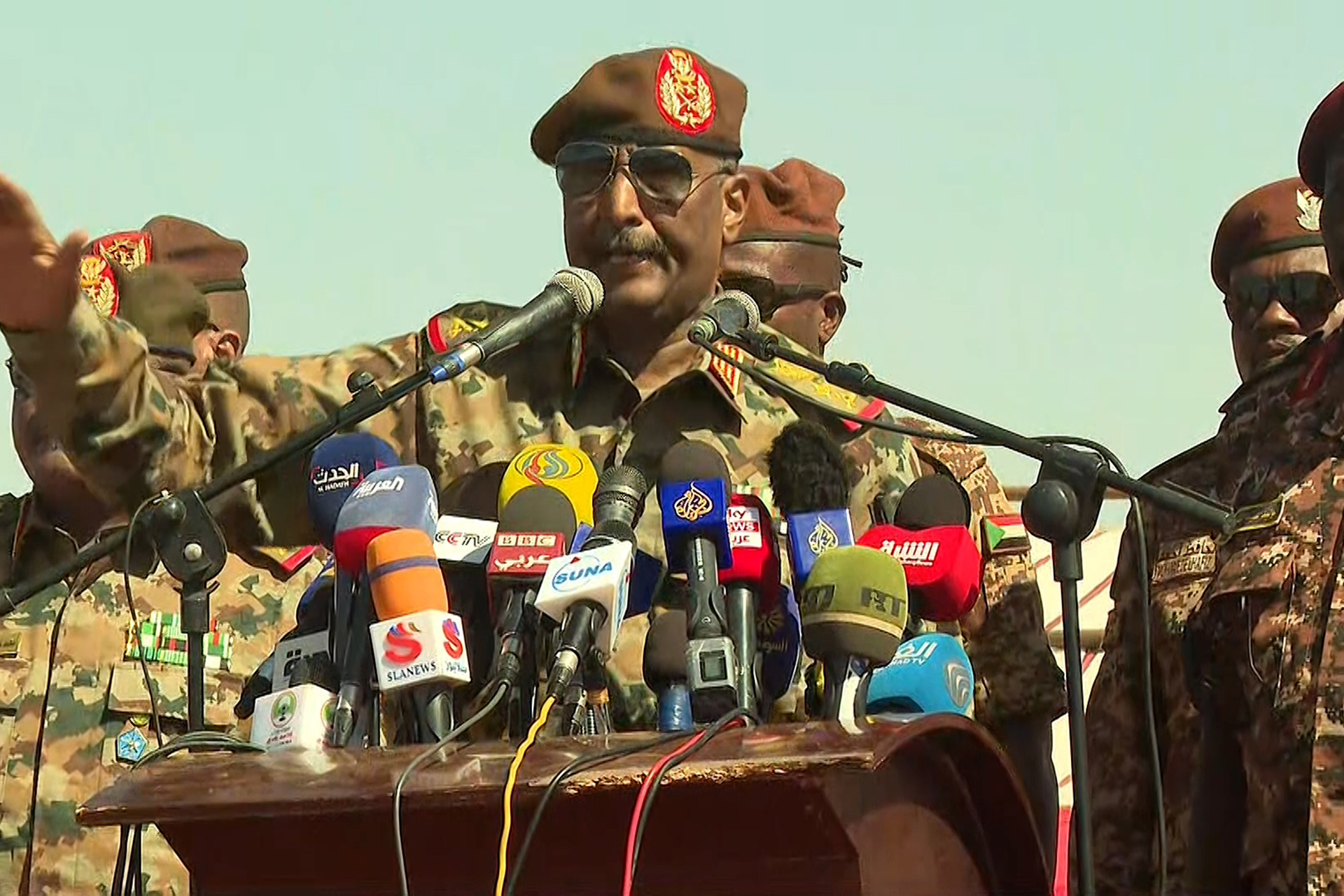The President of the Sovereignty Council in Sudan, Abdel Fattah Al-Burhan, called on all politicians to broaden their horizons and accept others for a smooth transitional period leading to the organization of elections, after the decision to set a time limit for the political process, which provoked mixed reactions between supporters and opponents.
Burhan added in a speech in North Kordofan that Sudan is embarking on a new phase that will be satisfactory to all, and stressed the need for all forces to be present in the ongoing political process, otherwise this process will falter.
He pointed out that the armed forces are the safety valve of the country, expressing keenness not to touch a hair of them, and stressed that they are establishing an army that does not interfere in politics in the future, and said that there is no military carries out a coup, but politicians are the ones who carry out coups, as he put it.
Sudanese opposition forces announced on Monday their rejection of the "timetable" for drafting the final political agreement, the constitution and the formation of the civilian government announced by a number of political parties with the ruling military sovereignty council.
The signatories to the framework agreement had set a time limit for the formation of the structures of the transitional period, the selection of a committee drafting the final agreement, and another committee to communicate with those who refused to join the political process.
Earlier on Monday, the "Tripartite Mechanism" welcomed the announcement of the timetable, a mechanism to conduct the political process between the Sudanese parties made up of the United Nations, the African Union and the Intergovernmental Authority on Development in East Africa (IGAD).
The Freedom and Change Forces (Democratic Bloc), which includes armed movements led by Jibril Ibrahim and Minni Arko Minawi, and other civilian political forces, were absent from the timetable meetings over the past two days.
On the eighth of January, under the auspices of the "Tripartite Mechanism", the final phase of the political process in Sudan began between the signatories of the "Framework Agreement" to reach an agreement to resolve the crisis in the country.
The "framework agreement" was concluded on the fifth of last December between the ruling Military Sovereignty Council and civilian forces, most notably Freedom and Change (the Central Council), in addition to civil society organizations and armed movements.
The ongoing political process aims to resolve a crisis that has dragged on since October 25, 2021, when army chief Abdel Fattah al-Burhan imposed exceptional measures, including the dissolution of the Sovereignty Council and the transitional ministers and the declaration of a state of emergency.
On August 21, 2019, Sudan began a transitional period that was scheduled to end with elections in early 2024, during which power would be shared by the army, civilian forces and armed movements that signed the Juba Peace Agreement with the government in 2020.

